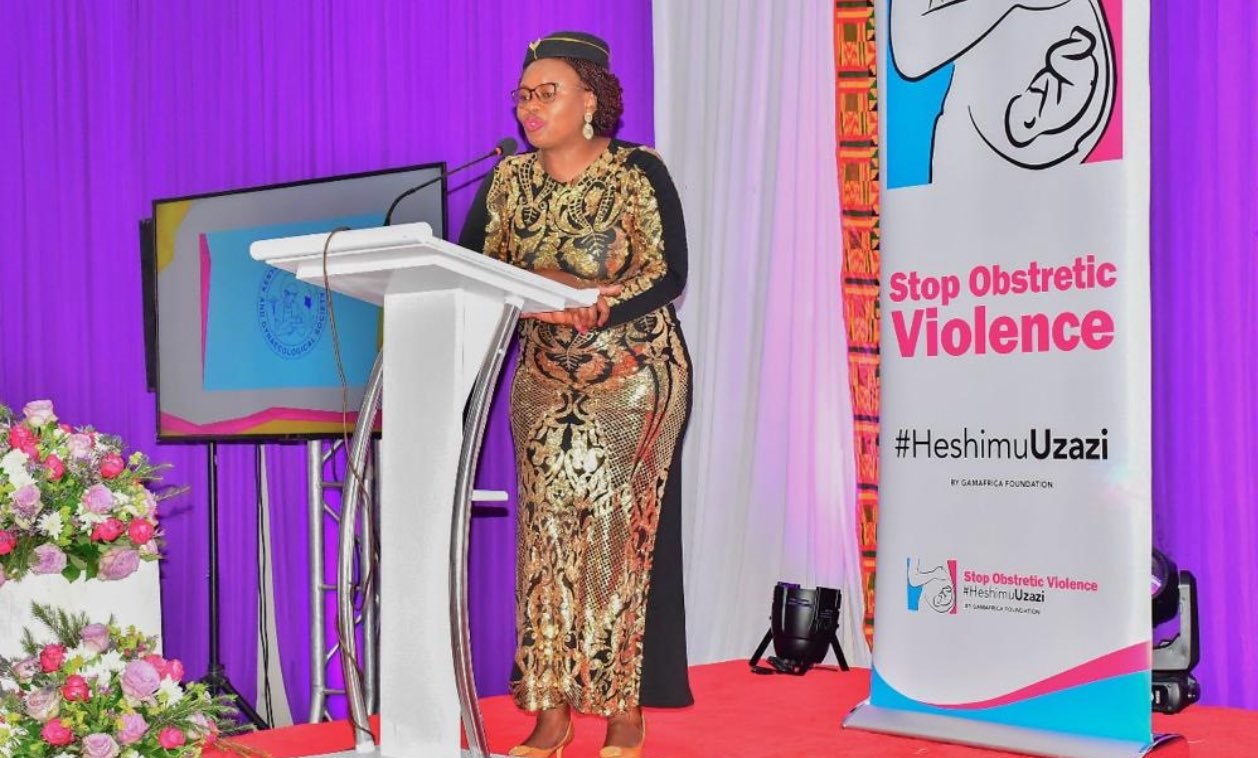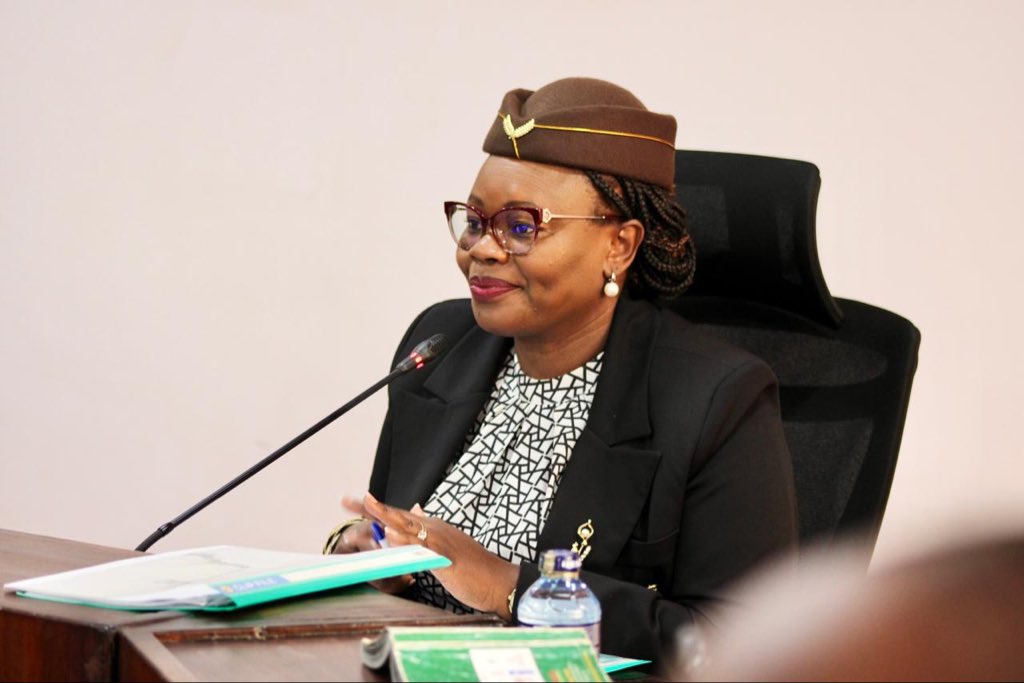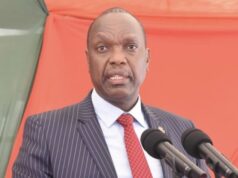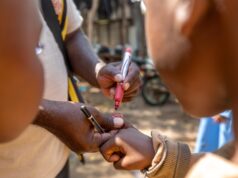Gathoni Wamuchomba calls for urgent debate on state of health! Githunguri MP and Chairperson of the Constitutional Implementation Oversight Committee (CIOC), Gathoni Wamuchomba, has called for an immediate parliamentary session to discuss the crisis in Kenya’s healthcare system.
In a letter to the Speaker of the National Assembly, Moses Wetang’ula, Wamuchomba highlighted serious issues, asserting that the state of healthcare in Kenya is a violation of citizens’ constitutional rights to life, dignity, and health.
Gathoni Wamuchomba

Call for Adjournment to Address Healthcare Crisis
Wamuchomba requested an immediate suspension of other House Business to focus solely on the failing health services in Kenya. She emphasized the importance of parliamentary intervention, stating, “The health of every Kenyan is in crisis. The government has failed to deliver on its promise of Universal Health Coverage (UHC), and citizens continue to suffer due to poor health infrastructure, lack of essential services, and widespread inefficiencies. It is time Parliament acts.”

The Failures of the UHC Pilot Programme
A focal point of Wamuchomba’s letter was the Universal Health Coverage (UHC) pilot programme launched in 2018 in Nyeri, Kisumu, Machakos, and Isiolo counties. Initially intended as a model for nationwide implementation, the pilot struggled to deliver tangible results. According to Wamuchomba, the UHC initiative aimed to provide affordable healthcare to all Kenyans but instead encountered persistent challenges.
While Machakos and Isiolo showed limited progress, the counties of Nyeri and Kisumu faced insurmountable hurdles, with Nyeri eventually withdrawing from the programme due to financial constraints. “The pilot never saw any meaningful success, and no lessons were learned to guide its nationwide implementation,” Wamuchomba remarked, describing the programme as a “failed experiment.”
Systemic Challenges Plaguing UHC Implementation
In her letter, Wamuchomba detailed the systemic issues that hindered the UHC pilot’s effectiveness, including alleged mismanagement of funds, poor transparency, and inadequate coordination between the national and county governments. She noted that citizens were often left uninformed about their enrollment status and benefits under UHC.

“Citizens were left in the dark about their enrollment status, and critical information about the program was not made available to them,” Wamuchomba said, stressing that public awareness and transparency are essential for successful health initiatives.
Broader Healthcare System Struggles
Beyond the UHC programme, Wamuchomba addressed the ongoing challenges within Kenya’s broader healthcare system. She criticized the government for neglecting public hospitals, which face chronic shortages of staff, drugs, and modern equipment.
“Our hospitals are in crisis. The lack of medical staff, persistent drug shortages, and outdated equipment have become commonplace,” she stated, warning that the construction of new facilities alone will not solve these issues. Wamuchomba argued for improvements to the existing infrastructure before embarking on new projects, stating, “We need to first address the issues in the current system; only then will we see meaningful improvements.”
Legal Hurdles in Implementing the Social Health Insurance Fund (SHIF)
Wamuchomba also highlighted the legal obstacles facing the Social Health Insurance Fund (SHIF), a key element of the UHC strategy. In July 2024, the High Court ruled that certain provisions within the Social Health Insurance Act (SHIA), the Digital Health Act (DHA), and the Primary Health Care Act (PHCA) were unconstitutional, giving Parliament a 120-day deadline to amend these provisions. However, Wamuchomba pointed out that this legislative process remains incomplete, delaying SHIF’s rollout.
“The delay in addressing the constitutional issues surrounding the SHIF is contributing to the continued failure of the healthcare system,” she stated. “The government must act quickly to address the legal challenges and ensure that the new system is both effective and sustainable.”
Counties’ Non-Compliance with SHIF Agreements
Adding urgency to the issue, Wamuchomba noted that many counties have yet to sign Intergovernmental Participatory Agreements (IPAs) needed for SHIF implementation. She argued that this lack of compliance has left essential health services in limbo across multiple regions.
“We cannot afford to delay any longer. Many health facilities are struggling because county governments have not signed the required IPAs,” Wamuchomba explained, emphasizing the need for immediate action to prevent further degradation of health services.
A Call for Parliamentary Action
In her final remarks, Wamuchomba urged Parliament to prioritize a debate on the healthcare crisis in Kenya. She has requested that the House adjourn its other business on November 12, 2024, to address the matter. She called on MPs to set aside differences and come together to discuss solutions for improving the country’s health system.
“Our people are suffering. We must not wait any longer. I urge all MPs to come together and take immediate action to address this crisis,” Wamuchomba concluded.
Wamuchomba’s appeal reflects growing public concern over the state of Kenya’s health sector, with calls for a nationwide overhaul that prioritizes transparency, effective resource management, and accessible healthcare for all. The upcoming parliamentary session may be a crucial step toward implementing long-term solutions for Kenya’s healthcare challenges.


















